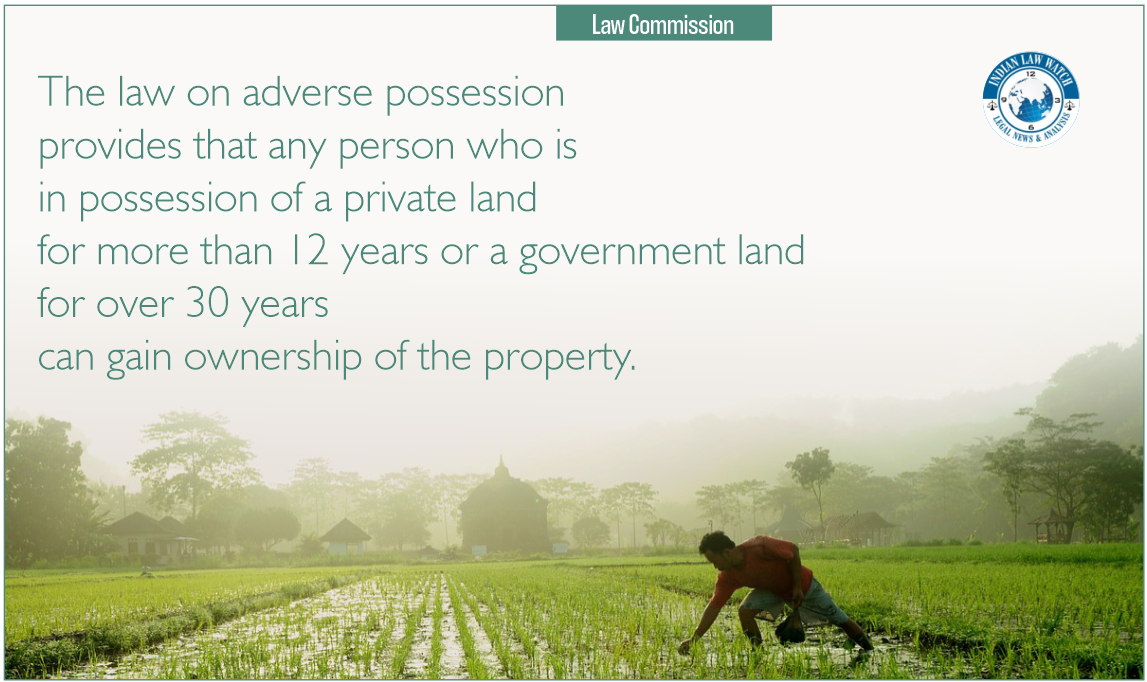
No need to change law on adverse possession of land, recommends Law Commission
The law on adverse possession provides that any person who is in possession of a private land for more than 12 years or a government land for over 30 years can gain ownership of the property. A legal heir can only make a claim by filing a suit for recovery within the prescribed period.

-
The Law Commission has recommended to the government that there was no need to introduce changes in the law relating to adverse possession of land.
-
But its two ex-officio members — Legislative Secretary Reeta Vasistha and Law Secretary Niten Chandra — have filed a dissent note claiming that the law promotes false claims which will not stand judicial scrutiny.
-
The law on adverse possession provides that any person who is in possession of a private land for more than 12 years or a government land for over 30 years can gain ownership of the property. A legal heir can only make a claim by filing a suit for recovery within the prescribed period.
-
“If the executing or controlling agency of government lands is not acting promptly and properly to prevent any encroachment, it does not mean that the law itself is bad,” the 22nd law commission headed by Justice Ritu Raj Awasthi (retd) said in its report on “The Law on Adverse Possession.”
-
In a supplementary note, the law panel said that the law is not meant for the benefit of the State or the government but for the public at large. Hence, it cannot be termed as colonial.
-
In his cover note to Law Minister Arjun Ram Meghwal, Justice Awasthi noted that the concept of adverse possession has been a part of Indian legal framework since a very long time. It is rooted in the idea that land must not be left vacant and instead be put to judicious use. The law on adverse possession underwent a significant change post the enactment of the Limitation Act of 1963. By virtue of the said change, the position of the true owner was fortified as he had to merely prove his title, while the burden of proof of adverse possession shifted on the person claiming so.
Source: MoneyControl






